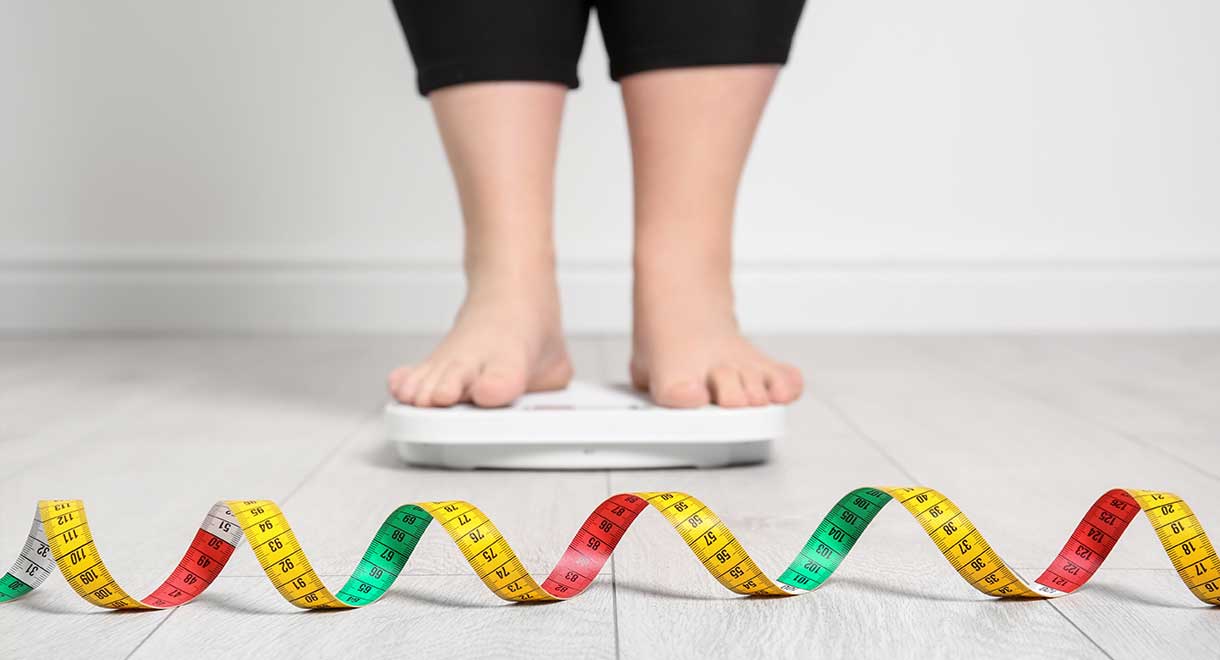How can I control my weight during and after menopause?
Weight gain is a very common complaint in peri-menopausal women. Indeed many women never have a problem with their weight, until they arrive at menopause, and then suddenly, the weight seems to pile on for no apparent reason. Yes apparent is the word, because there are often hidden problems with the metabolism that are responsible for this weight gain.
Unwanted weight gain at menopause is most commonly due to one or a combination of the following factors –
- Syndrome X – the chemical imbalance that makes your metabolism store fat
- Liver dysfunction – the liver stops burning fat efficiently, and indeed you may develop a fatty liver, which is infiltrated with unhealthy fat. In such cases, unless we improve the liver function, it is impossible to lose weight.
- Underactivity of the thyroid gland, which causes a slowing down of the metabolic rate.
- Inappropriate hormone replacement therapy with oral forms of potent hormones.
- Excessive doses of HRT, especially testosterone.
- Stress eating to cope with anxiety, boredom and depression.
- Lack of exercise in women who have medical problems, or not enough time for themselves.
The most common cause of excessive weight gain during and after menopause is Syndrome X!
Syndrome X
For those who battle with their weight, Syndrome X is a fascinating subject, and explains the difficulty many menopausal women have in controlling their weight as they get older.
How does Syndrome X develop in our body?
Syndrome X begins with the phenomena of insulin resistance, which means that the body gradually becomes resistant to the effect of its own insulin. The body compensates for this, by producing more and more insulin, resulting in excess levels of insulin in the blood. Insulin is the hormone that is produced by the pancreas to control the metabolism of sugar and fat in the body.
High levels of insulin are undesirable because –
- Insulin is a fat storing hormone – insulin converts excess dietary carbohydrates into body fat.
- Insulin suppresses the levels of the fat burning hormones in your body – thus it stops you from burning body fat for energy.
- Thus high levels of insulin not only make you fat, they make sure that you stay fat – yes Syndrome X is a double edged sword!
- The high insulin levels make you very hungry – insulin stimulates the appetite, and makes you crave carbohydrates such as bread, biscuits, cakes, muffins, snack foods, pasta, noodles, rice, grains and cereals and sugar. The high levels of insulin will turn these carbohydrates into body fat, which explains why you can become very overweight on a fat free diet!
No wonder that those with Syndrome X find themselves trapped in a metabolic nightmare and often believe it is their weak will power that is to blame. Well, stop feeling guilty! Syndrome X is not a psychological problem; it is a chemical imbalance that redirects your metabolism into fat storing.
High levels of insulin can be very toxic and may result in other health problems such as:
- High levels of the bad LDL cholesterol
- Low levels of the good HDL cholesterol
- High levels of the fat triglycerides
- Increased plaque formation in the arteries
- Fluid retention
- Elevation of blood pressure
- Unstable blood sugar levels, which can go on to type 2 diabetes.
Syndrome X can be compared to an iceberg – all you see are the symptoms above the surface of the water, but the cause of Syndrome X, namely insulin imbalance, remains hidden below the surface of the water. Unless we correct the insulin imbalance, it is impossible to lose weight.


Dr Cabot’s book I Cant Lose Weight and I Don’t Know Why explains the ins and outs of insulin resistance and provides a 12 week metabolic weight loss plan, complete with healthy, low carb recipes for you to enjoy. Using a good quality, low-carb protein powder such as Synd X Powder is beneficial for weight loss and balancing blood sugar levels.
Fatty liver is commonly associated with metabolic syndrome and is becoming more and more prevalent, even in those who don’t drink alcohol. You can request testing from your doctor if you suspect that you might have a Fatty Liver. See the book Fatty Liver You Can Reverse It for a healthy eating guide to heal your liver.









Leave A Comment